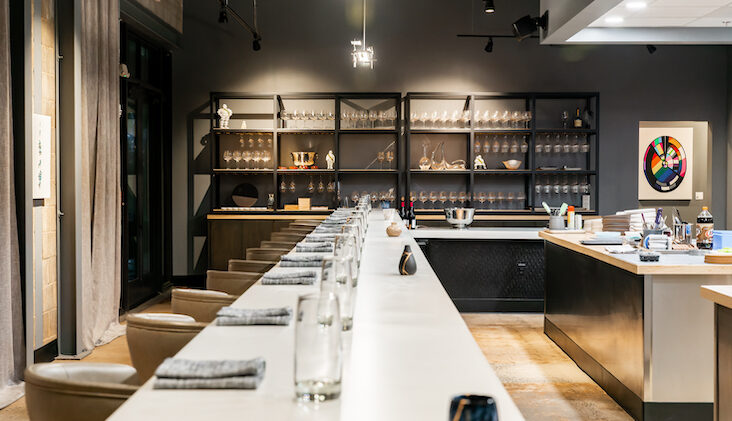Many people are intimidated at the thought of working with a sommelier in restaurants. That’s often because some believe that the somm’s primary job is to steer them to pricier selections; others just don’t want to appear naïve — or cheap — when engaging with a restaurant wine pro.
“I get it: A random person trying to sell you (expensive) wine at a restaurant can be intimidating,” says Michael Myers, lead sommelier at Counter restaurant in Charlotte, NC. But if the somm is doing their job correctly, he notes, money should be the last thing on their mind.

“The sommelier’s number-one priority is making sure you are going to try a wine that you absolutely love,” Myers says. “Keep that in mind when the sommelier comes to the table; they are truly there to help you out.”
Here are some of Myers’ tips for working with a somm.
1) View the sommelier as a matchmaker.
They should be asking you questions to get to know your style — what you like, flavor preferences, style preferences, but also what you drink on a daily basis, says Myers.
Remember that somms are not asking these questions to judge what you like: “We are asking them to get to know you and be able to pair you with the best wine,” he says.
2) Be honest.
Trying to impress who you’re with by just talking about things to make you sound knowledgeable won’t help the sommelier. “Tell them what you like, and it’s okay to not know things. That’s what the sommelier is there for.”
Beyond the basic questions — white, red, rosé, or bubbles — Myers will ask a table what kind of wine and specific brands of wine they drink on a daily basis, and what wines they have at home right now.
“The fun one is when sommeliers will ask how you drink your coffee,” he adds. “Black means you typically enjoy more tannins/fuller bodied wine, cream/sugary coffees typically means the opposite: softer tannins, more fruit-forward wines.
3) It’s okay to talk about money.
“Price is always a fun topic,” Myers says. “Oftentimes I will just automatically select three wines and three different price points. From there, it is perfectly okay to then select one from whichever price point, and say “Hey, I’d like to hear about wines more similar to this wine.”
That’s usually a subtle cue to the sommelier that this is a more comfortable price point. But Myers stresses that you should never be embarrassed to talk about price. The sommelier’s job is to know the list and find you the best wine, not the more expensive one.
4) Consider half-bottles.
If you can’t decide between different kinds of wine, ask the sommelier about half-bottle selections. “Oftentimes overlooked, half-bottles can be a great way to try different styles and kinds of wine,” Myers notes.
5) Have fun!
You’ve supposed to be out enjoying yourself, so relax and don’t let the wine selection stress you out. What’s more, sommeliers love a good joke, Myers says. “And if you’re comfortable, open, and respectful, we will always try to go above and beyond!”







